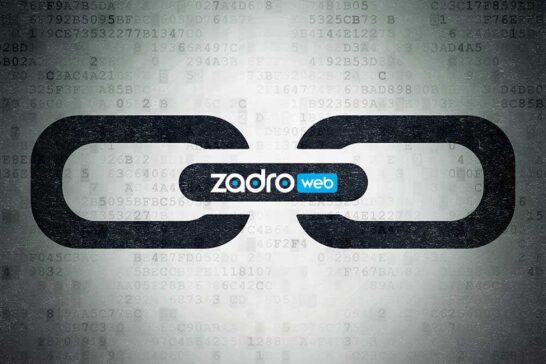Every webmaster wants their website to perform well in the SERPs, and you're unlikely to meet one who takes a rather blasé attitude to their page rankings.
“We're seven pages in and below the fold? That's good enough.” That's not a phrase you're likely to hear from the owner of a struggling website.
So, as SEOs and webmasters work hard to optimize their websites for the best possible online performance, link building plays a large part in those optimization strategies. But the question we have to ask ourselves is, are we linking to the right page?
More often than not, the emphasis is on linking to a website's home page. That's understandable, as the home page is basically a website's front door. But this is wrong (in most cases), and building links to a website's internal pages is MUCH more beneficial.
That's where Deep Linking comes into play.
Deep Linking
Deep linking is nothing new, but it sometimes gets overlooked in the hustle and bustle of fresh and exciting SEO techniques. Deep linking is the process of building links to your site's internal pages and blog posts instead of its home page or 1-off pages.
A website's home page tends to get all the love where links are concerned, but that's not the best strategy. Your home page can not shoulder the burden of all of the keywords and long-tail phrases for which you want your site to rank. Neither can it properly encompass the full range of your site's content. Plus, it looks highly unnatural. 1-off pages are ones directly linked from your homepage.
Deep links are typically 2 or 3 levels from the homepage, and this deep linking will help to diversify your link profile. It also allows you to leverage the backlog of content that exists within your website.
But Link Building Is Bad, Right?
Wrong. In the wake of Penguin, Panda, and Hummingbird (and any other ferocious beasts Google decides to unleash) everyone has become skittish where links are concerned. But links themselves are not bad. It's actually how the web works, no matter what you hear from the latest Google spokesperson to stop link building or guest blogging.
Link trees and wheels are bad, don't do that. Buying or bartering for links is a no-no as well. Directories, well...you need some.
Good quality links still have value (and always will), even when they are no-follow links. More to the point, now that Google has brought the hammer down on shady link building practices, it's more important than ever to make your link building strategies more effective.
The reason why you hear "SEO gurus" tell you to stop link building is because most people get link building wrong. It takes a lot of time and patience to do it right.
Let's look at some of the benefits of deep linking as a way to improve your site's online visibility, enhance the user experience, and increase your rankings!
The Benefits of Deep Linking
Deep linking offers a number of benefits for the savvy webmaster or SEO. These apply to performing well in the SERPs, boosting your site's online authority and overall ranking, and creating a better user experience for visitors to your site.
- Boost Online Authority - Perceived value and authority have become increasingly important ranking factors for Google. Deep linking allows you to highlight the quality of your site's internal content. Having a thousand links pointing to your home page is not a good idea, and having them distributed to other areas of your site tells the search engine that the website is filled with valuable content. Also, a diverse link profile shows you provide a resource that other websites and online users turn to for authoritative information. That makes Google happy.
- Rehabilitate Older Content - A new article or blog post shines briefly and then gets unceremoniously shunted into your website's archive. A new link from a relevant source will not only give your older content some SEO juice, but it will also expose it to a new audience who may in turn, share it with their peers or link to it through their site.
- Improve User Experience - Your website's home page is not always the best landing site for new visitors looking for specific information. Indeed, someone searching for a specific answer to a query may very well land on your home page, fail to find what they were looking for and bounce back to the SERPs. It doesn't matter that three clicks in was a stunning article that could answer all of their questions. Deep linking allows you to bring visitors directly to the information they crave, improving their user experience, and increasing the likelihood that they will explore your website and ultimately return again for more.
- Inspire New Content - Deep links can help you recognize the content on your site that is getting the most attention. By tracking content receiving the most links, you can get a good indication of topics that interest your visitors and that can drive the creation of new content. Using Open Site Explorer to gauge your "top pages" can help here.
This All Sounds Good, but How?
As I've mentioned, most people get link building wrong. And deep link building is even more difficult. It takes a lot of outreach to bloggers, and above all, your links absolutely must be relevant and have good anchor text distribution.
You can use link building tools to jump-start your link prospecting. Creating a network of industry experts is critical and can be a full-time job in itself. It's a really difficult job to do properly.
Quick tip: when commenting on blog posts or forums, drive deep links to your interior pages.
You could also reach out to our team. We've built links on high authority websites such as Glamour, Lifehack, Forbes, and many others for our clients.
Deep linking is nothing new, but it is an invaluable technique.
Take some time to audit your website, and examine its link profile with Aherfs or similar. If the home page is getting substantially more links than your internal content, it may be time to adjust your link building strategies and build some deep links to the heart of your website.
Actually, it's always time to do deep link building.




